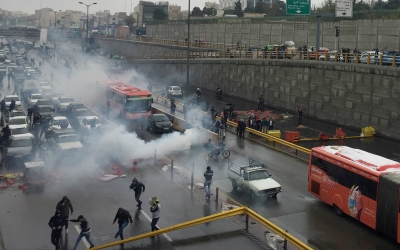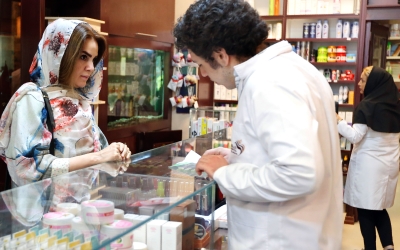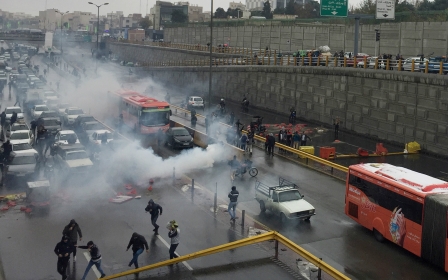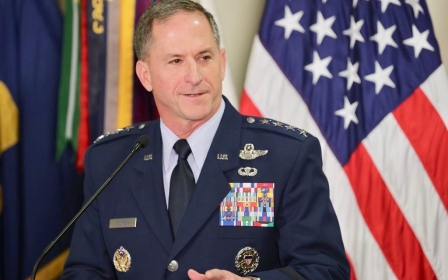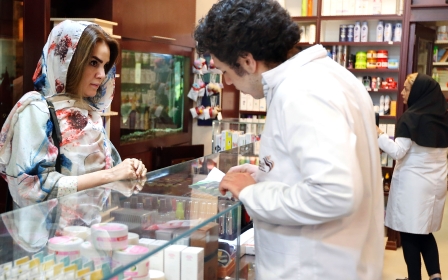Iran's supreme leader defends fuel price hike as policeman shot dead during protests
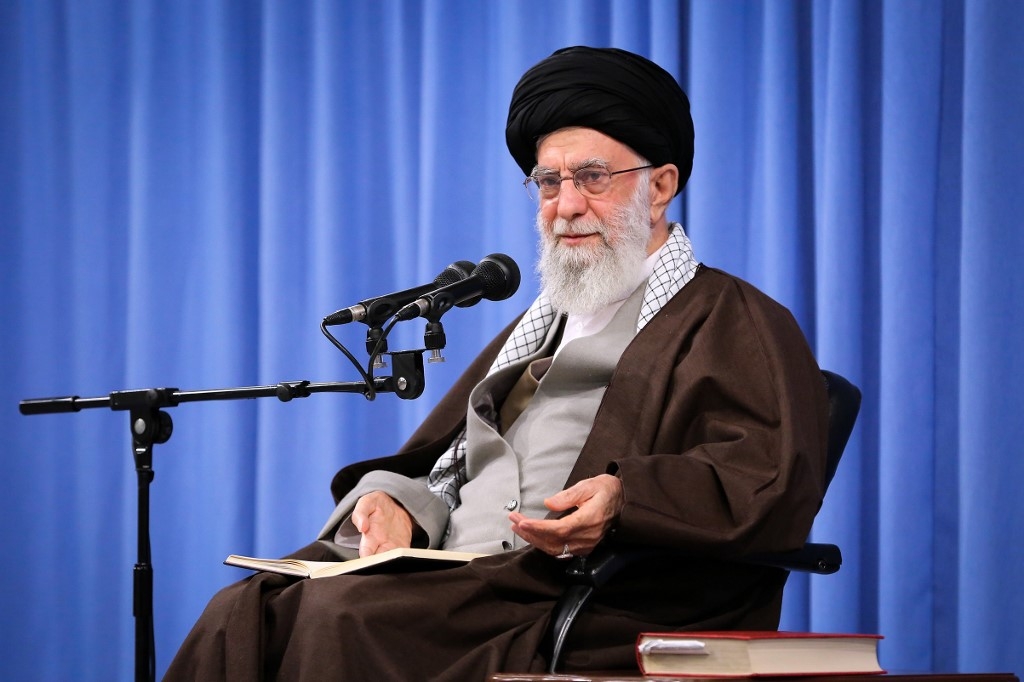
Iran’s Supreme Leader Ayatollah Ali Khamenei announced on Sunday his support for government measures to increase fuel prices as it was reported that a policeman had been killed during protests against the price hikes.
The officer, the second person to die since the protests began on Saturday, was shot in a clash with "rioters and thugs" in western Iran, the state news agency IRNA reported.
Major Iraj Javaheri died on Sunday following a confrontation with armed attackers during unrest in the city of Kermanshah on Saturday, provincial police chief Ali Akbar Javidan said, cited by IRNA.
The officer was "martyred in a confrontation with a number of rioters and thugs," Javidan said, adding that the officer suffered a gunshot wound while trying to defend his police station from the assailants who attempted to seize it.
"The people of Kermanshah, alongside people of other cities, peacefully protested the recent developments... and their concerns will certainly be heard.
"The majority of citizens do not approve of the chaos caused by some known individuals and clearly ask for confronting them," the police chief added.
Earlier on Sunday, Khamenei defended the gasoline rationing and price hikes of at least 50 percent in the sanctions-hit country, despite nationwide protests against the move, saying it was based on expert opinion.
Speaking during a meeting with clerics at his Islamic Thoughts lecture in the capital Tehran, Khamenei blamed the protests on “hooligans” and “Iran’s enemies”.
"Some people are no doubt worried by this decision... but sabotage and arson is done by hooligans not our people," Khamenei was quoted by state TV as saying.
"The counter-revolution and Iran's enemies have always supported sabotage and breaches of security and continue to do so."
President Rouhani backs price hikes
Khamenei's remarks came a day after nationwide protests erupted in dozens of cities, including Tehran, to reject a decision on Friday by the government of President Hassan Rouhani to impose the new measures.
Rouhani’s government announced that the price of a litre of regular gasoline had increased to 15,000 rials (12.7 US cents) from 10,000 rials, and the monthly ration for each private car was set at 60 litres.
Additional purchases would cost 30,000 rials per litre.
President Rouhani said on Sunday that Iran cannot allow "insecurity" in the face of rioting.
"Protesting is the people's right, but protesting is different from rioting. We should not allow insecurity in the society," Rouhani told a cabinet meeting, quoted by his official website.
Rouhani defended the controversial petrol price hike - which the government says will finance social welfare spending -- arguing the alternatives were less favourable.
"The government's purpose in the livelihood support programme is to help low- and medium-income families who are under pressure in the situation with economic sanctions," he said.
"For this... we should either increase taxes on the people, export more oil... or reduce subsidies and return the revenues to the people in need."
Riot police deployed
Riot police clashed with protesters on Saturday, leaving at least one dead in the southeastern city of Sirjan, according to Iranian media.
The unrest is reminiscent of nationwide protests held in late 2017 against poor living standards, when at least 22 people died.
Friday’s price hikes had been agreed by the High Council of Economic Coordination, made up of the president, parliament speaker and judiciary chief.
"I am not an expert and there are different opinions but I had said that if the heads of the three branches make a decision I will support it," Khamenei said on Sunday.
"The heads of the branches made a decision with the backing of expert opinion and naturally it must be implemented," he said in the speech aired on state television.
"Some people would definitely get upset over this decision... but damaging and setting fire [to property] is not something [normal] people would do, it is hooligans," he added.
'Near-total national internet shutdown'
The Supreme National Security Council of Iran has restricted internet access in the aftermath of the protests, according to the semi-official news agency ISNA.
"Access to the internet has been limited as of last night and for the next 24 hours," a source at the information and telecommunications ministry said, quoted by ISNA.
Netblocks, a website monitoring internet services worldwide, said on Saturday that the Islamic Republic was having an internet shutdown.
"Confirmed: Iran is now in the midst of a near-total national internet shutdown; realtime network data show connectivity at 7% of ordinary levels after twelve hours of progressive network disconnections," it said on Twitter.
US State Department spokeswoman Morgan Ortagus tweeted: "We condemn the attempted shutdown of the internet. Let them speak!"
Crippling US sanctions
The US Energy Information Administration estimated that the Islamic Republic had an estimated 157 billion barrels of proved crude oil reserves in January 2018, the fourth-largest oil reserves of any country in the world.
Iran also holds the world's second-largest gas reserves.
However, Tehran's ability to profit from its oil wealth has been badly affected by crippling US sanctions.
Since Washington pulled out of the landmark 2015 nuclear deal with world powers, Iran's economy has suffered badly and much of its oil revenue has dried up.
Many Iranians are frustrated because of the sharp devaluation of Iran’s rial currency and spikes in the prices of bread, rice and other staples since the reimposition of US sanctions.
Oil Minister Bijan Zanganeh told state TV on Friday that the measure was aimed at "reining in soaring consumption, exporting gasoline and helping needy families".
The move is expected to raise around $2.55bn a year for additional subsidies for 18 million families, or about 60 million Iranians on lower-incomes, the government said.
Middle East Eye propose une couverture et une analyse indépendantes et incomparables du Moyen-Orient, de l’Afrique du Nord et d’autres régions du monde. Pour en savoir plus sur la reprise de ce contenu et les frais qui s’appliquent, veuillez remplir ce formulaire [en anglais]. Pour en savoir plus sur MEE, cliquez ici [en anglais].


